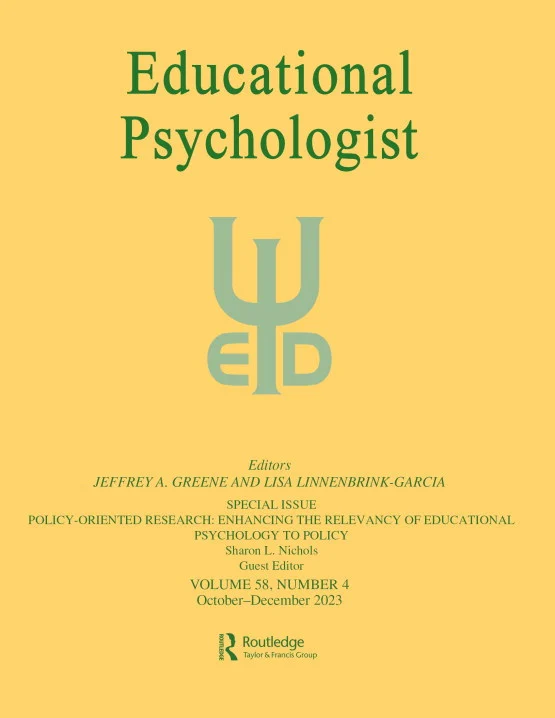支持教师“SRL-SRT三重过程”促进学生学业成果的概念框架和专业发展模型
IF 11.4
1区 心理学
Q1 EDUCATION & EDUCATIONAL RESEARCH
引用次数: 25
摘要
摘要针对教师在专业知识和实践以及学生学习中实施有效自我调节学习(SRL)的困难,本文提出了一个专业发展的概念框架和实践模型,可以帮助连接教师自我调节学习的理论、实践和研究。“三重SRL - SRT过程”框架扩展了先前区分教师自身SRL和自我调节教学(SRT)的双重框架,也区分了SRT中以教师为中心和以学生为中心的方面。具体而言,本文提出了三种类型的自我调节:(1)教师作为学习者自我调节自己的学习;(2)教师自我调节作为自我调节教师的行为(以教师为中心的SRT);(3)教师作为SRL(以学生为中心的SRT)的教师激活学生的SRL。为了支持教师使用这一框架进行自我调节,本文提出了一个螺旋形的专业发展模型,该模型得到了初步研究的支持,表明教师的SRL - srt、学生的SRL和成就具有积极作用。讨论了概念贡献和实际意义。本文章由计算机程序翻译,如有差异,请以英文原文为准。
A conceptual framework and a professional development model for supporting teachers’ “triple SRL–SRT processes” and promoting students’ academic outcomes
Abstract To address teachers’ difficulties in implementing effective self-regulated learning (SRL) for their professional knowledge and practice as well as for their students’ learning, a conceptual framework and a practical model for professional development is proposed that can help bridge theory, practice, and research on teachers’ SRL. Expanding on prior dual frameworks that differentiate teachers’ own SRL from their self-regulated teaching (SRT), the “triple SRL–SRT processes” framework also distinguishes teacher-focused from student-focused aspects of SRT. Specifically, three types of self-regulation are proposed: (1) teachers self-regulate their own learning as learners (SRL); (2) teachers self-regulate their practice as self-regulated teachers (teacher-focused SRT); (3) teachers activate students’ SRL as teachers of SRL (student-focused SRT). To support teachers’ self-regulation using this framework, a spiral model of professional development, supported by preliminary research showing positive effects on teachers’ SRL–SRT and students’ SRL and achievement, is proposed. Conceptual contributions and practical implications are discussed.
求助全文
通过发布文献求助,成功后即可免费获取论文全文。
去求助
来源期刊

Educational Psychologist
Multiple-
CiteScore
19.10
自引率
3.40%
发文量
16
期刊介绍:
The Educational Psychologist is a scholarly journal dedicated to exploring the psychology of learning and instruction. Articles in this journal encompass a diverse range of perspectives, from examining psychological mechanisms to exploring social and societal phenomena related to learning and instruction. The journal publishes theoretical and conceptual articles, as well as reviews and meta-analyses, that significantly contribute to theory or advance the methods used to explore educational psychology. Emphasizing innovation and advancing understanding, the journal does not publish articles solely reporting the methods and results of empirical studies; instead, all submissions, including reviews and meta-analyses, must offer clear implications for advancing theory. In addition to regular articles, the journal features special issues that delve into important themes in educational psychology, along with focal articles accompanied by peer commentary.
 求助内容:
求助内容: 应助结果提醒方式:
应助结果提醒方式:


